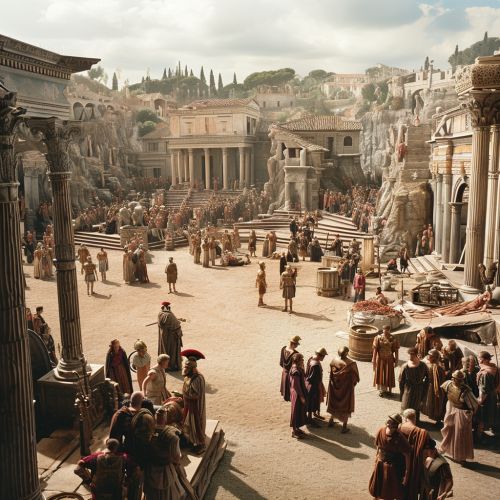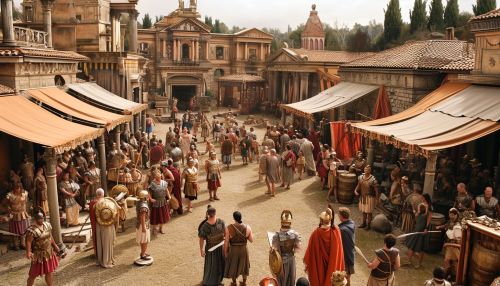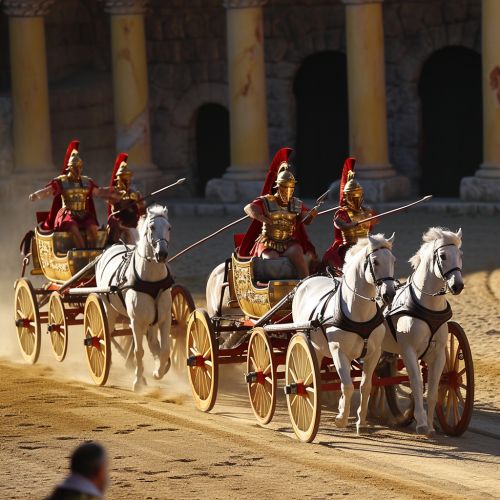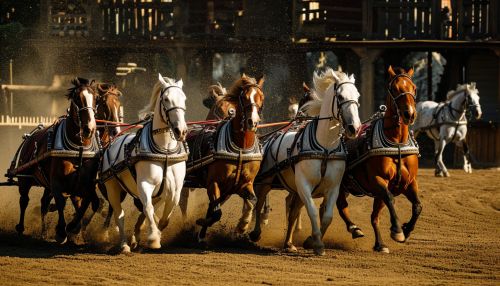Ben-Hur (1959 film)
Production
The production of Ben-Hur was a massive undertaking. The film was produced by Sam Zimbalist for Metro-Goldwyn-Mayer and directed by William Wyler. The screenplay was written by Karl Tunberg, but there were also contributions from Maxwell Anderson, S. N. Behrman, Gore Vidal, and Christopher Fry. The film was shot in Rome, Italy, with some scenes filmed in a nearby desert and in the Mediterranean Sea.


The production of Ben-Hur was marked by its unprecedented scale and complexity. The film required more than 300 sets spread over 340 acres. The nine-minute chariot race, for instance, took five weeks to film and required 15,000 extras on a set constructed on 18 acres of backlot at Cinecittà Studios.
Plot
The film tells the story of Judah Ben-Hur, a wealthy Jewish prince and merchant in Jerusalem at the beginning of the 1st century. Judah's childhood friend, Messala, returns home as an ambitious commanding officer of the Roman legions. The two become bitter enemies after Messala betrays Judah to the Roman authorities, resulting in Judah's enslavement on a galley and his family's imprisonment. The film follows Judah's journey to seek revenge against Messala and his eventual encounter with Jesus Christ.
Cast
The cast of Ben-Hur was led by Charlton Heston in the role of Judah Ben-Hur. Heston was not the first choice for the role, but he was eventually chosen due to his physical stature and reputation for playing strong historical figures. Stephen Boyd was cast as Messala, Judah's childhood friend turned enemy. The film also featured Hugh Griffith as Sheik Ilderim, Martha Scott as Miriam, and Cathy O'Donnell as Tirzah.
Reception
Upon its release, Ben-Hur was a critical and commercial success. The film was praised for its epic scale, performances, and the thrilling chariot race sequence. It won a record 11 Academy Awards, including Best Picture, Best Director for Wyler, and Best Actor for Heston. The film's success helped save MGM from financial disaster.
Legacy
The legacy of Ben-Hur is significant. The film is considered a classic and one of the greatest films of all time. Its influence can be seen in subsequent epic films and it has been referenced in numerous other media. The film was also notable for its promotion of Christian themes, which was unusual for a mainstream Hollywood film at the time.


